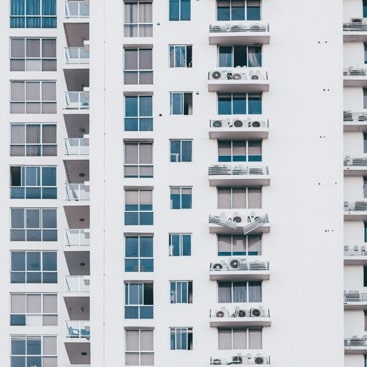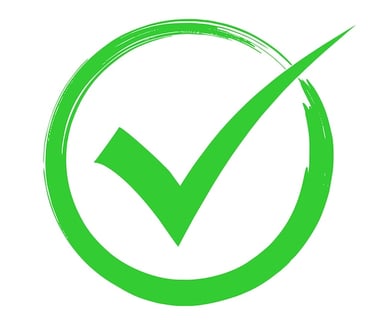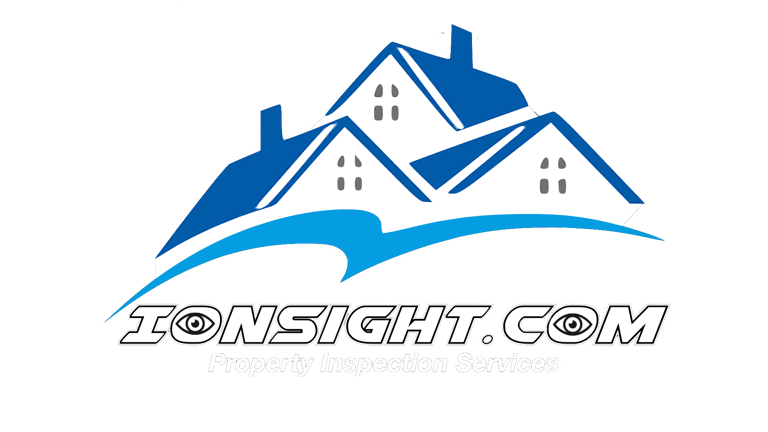What is a Home Inspection?
Few people would ever buy a home without viewing it first. After all, any sensible buyer would want to see firsthand what they are getting. However, the person who buys a home without a home inspection is doing this without a full knowledge of potential issues.
Inspections are a good idea even for newly built homes that pass construction codes. Home inspections in such cases are an extra layer of protection against construction defects that would otherwise require costly repair work later on.
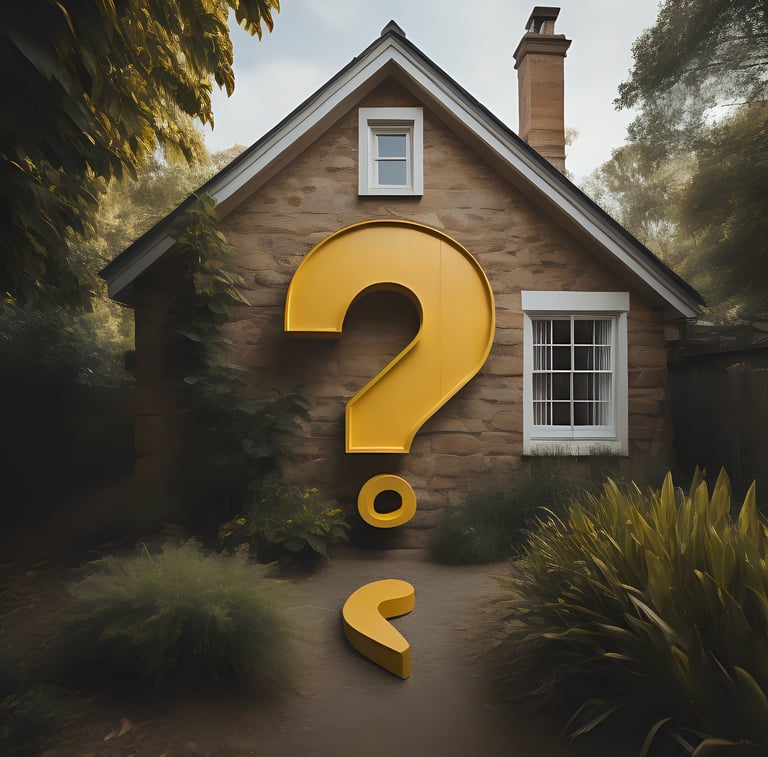



HOME INSPECTION CHECKLIST
A home inspection is a visual examination of its structural integrity and its foundation. The inspection includes the roof and walls as well as the home's systems such as the plumbing, various electrical elements, and the heating and air conditioning. Appliances are also checked. The inspector will look for evidence of water damage, mold growth, and other common home issues. The inspection is not an appraisal of the home's value nor does it determine if building codes were violated. It is an assessment of the current condition of a home.
In addition to pointing out problems, the inspector should also make recommendations on any maintenance needs such as changing the AC filters, leaning AC ducts, adding more soil to places around the foundation of the home where the water may not properly drain, trimming back landscape and trees away from the home to reduce pest infestation, etc. He should recommend the required type of professional such as an HVAC specialist, roofer, electrician or plumber. He should never recommend a specific person or company because this calls into question the neutrality of his assessments and therefore his trustworthiness. A home inspector should have no allegiance to any particular recommended company. He should, rather, simply tell you to follow-up with an HVAC company as an example.
It is not uncommon for a home inspector to recommend contacting a specialist in a certain area of expertise. Recommending the buyer follow-up with a specialist in a certain area is very common in the inspector's final report. Don't freak out as a buyer. It doesn't mean the house is not in good condition. It simply means the inspector may have noticed something of concern and he or she is not licensed to diagnose a possible issue any deeper than a surface glance and initial opinion.
In particular, first time home buyers tend to get anxious if the inspector recommends contacting a specialist. The inspector is simply trying to be careful, diligent and looking out for the best interest of the client. From most experiences, and in 99% of the cases, there are no additional, major issues once the expert comes to follow up on the home inspector's recommendations.
A home inspection is NOT a 100% guarantee or warranty that the home is completely free of defects. The home inspector will NOT move furniture, appliances, look inside walls, drain pools, etc... The home inspection is NOT free. It is NOT done by city inspectors or anybody with a public or government agency. This is a private home inspection for which the buyer pays the inspection fee out of their own pocket to a private home inspection business.
A Common Myth about Home Inspections
A common misconception by buyers is that a home inspection is a "pass" or "fail" type of inspection. This is not true in the private sector. A private home inspection (such as you will have) will simply be a report by the inspector about the overall condition of the home, the home's systems and its components. A pass/fail home inspection is only done by city inspectors at the time the home is being constructed. City inspectors will give home builders a pass or fail during certain stages of the home's construction. This is known in the home building business as a "green or red tag." If the home builder receives a failing grade, Mr. or Ms. Home Builder must remedy the issue to the inspector's satisfaction & local code requirements. Again, your home inspection is not a pass or fail grade but rather a general report. A very detailed report, but still just a report.
Important Note about Home Inspections on Condos
Condo inspections will differ from single family home inspections. When you purchase a condo, you are only responsible for "wall to wall" issues. Meaning, you only have liability for repairs for issues inside the interior of the unit. Your HOA (Condo Fees) dues go to repair problems like roofs, and sometimes HVAC systems - check with the HOA (Home Owners Association/ Condo Board) first, plumbing issues between the walls, etc... Therefore, a condo inspection may not be as in-depth as a single family home since the home inspector will generally not inspect items covered by the the HOA since you, the buyer, are not responsible for the issues should they arise.
However, and in best practice, the HOA bylaw documents, rules & regulations should be delivered to a buyer during the time the buyer is purchasing the contract and must be done prior to closing and taking possession. Read these condo documents thoroughly - as this can be a make it or break it for any deal. They will state specifically what each condo owner is responsible for when it comes to unexpected homeowner issues. If the new buyer finds a clause or bylaw that he or she cannot live with, they may need to terminate the contract. Such items may include: are pets allowed, are children allowed, number and areas of secure parking, access after hours, ect.
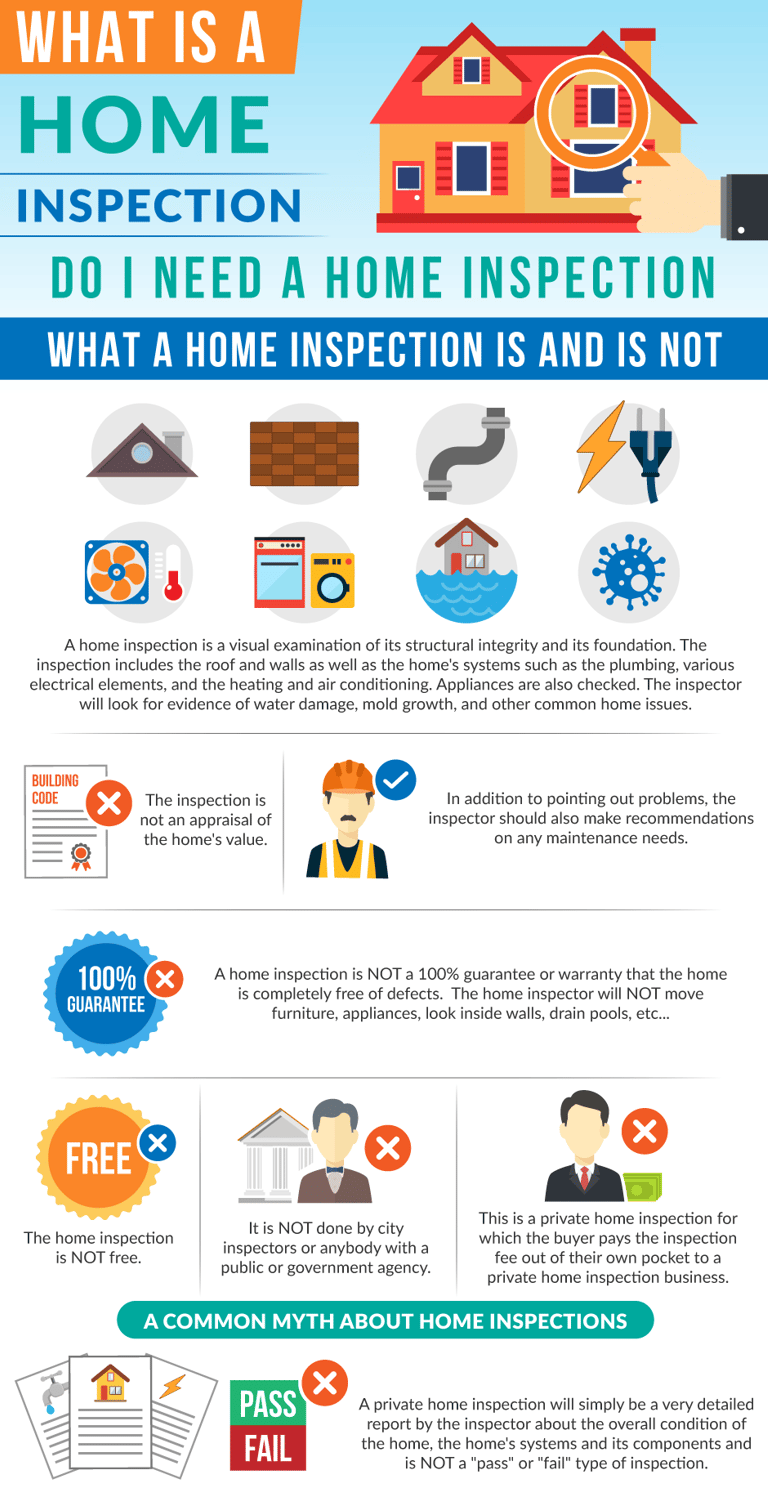

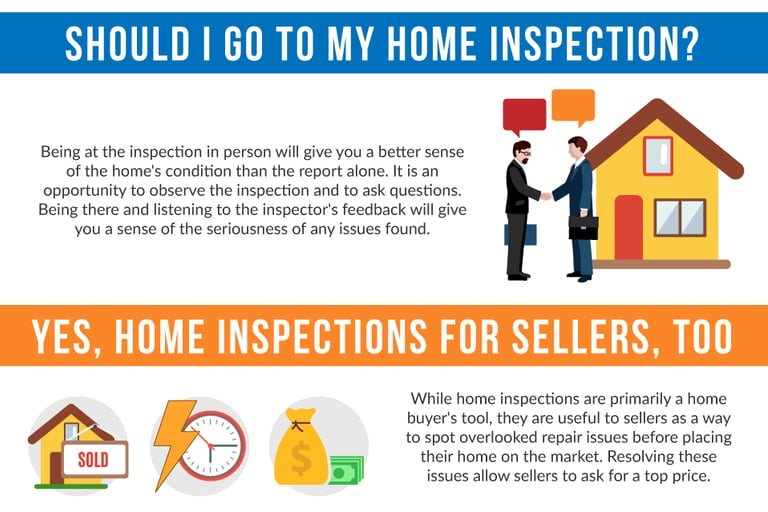

What are the MOST important areas of a Home Inspection?
Issues that put the health and safety of the people living in the home at risk will fail a home inspection. Common causes of a failed home inspection include:
Any Safety issue that might affect a child, an elderly person, or someone with limited mobility.
Moisture in the basement
HVAC problems, like insufficient wiring to handle the demands of the heating and cooling equipment, gas-fired furnaces with inadequate exhaust systems, cracked ductwork, and flue pipes that have not been correctly installed
Roofing problems, leaks, and water damage
Moisture problems in the attic related to poor insulation, ventilation, or vapor barriers can lead to mold and mildew
Electrical safety issues
Extensive rotting wood
Security issues related to proper window and door locks
Defective smoke and carbon monoxide detectors and other safety devices
Problems with the foundation like cracks in walls, and doors that fail to latch or that jam
Plumbing problems.
Defective masonry
The Above is not a comprehensive list, but one that is often asked for by clients.
